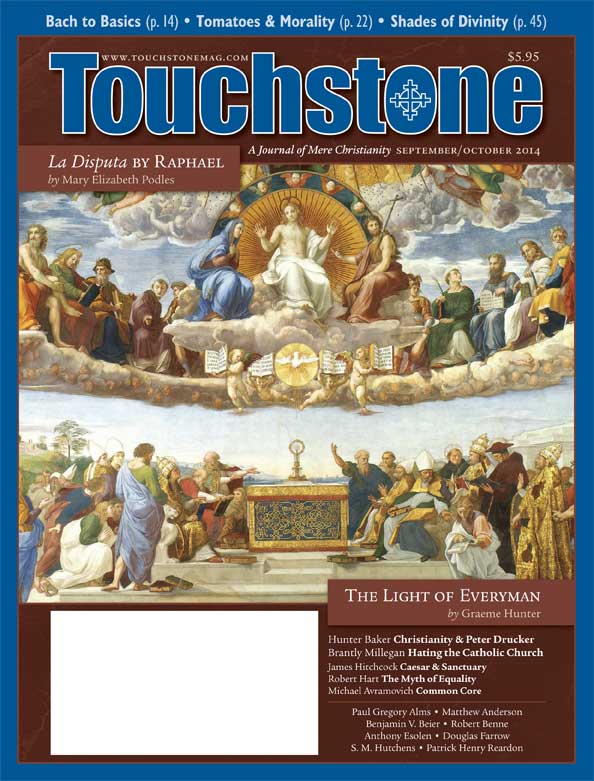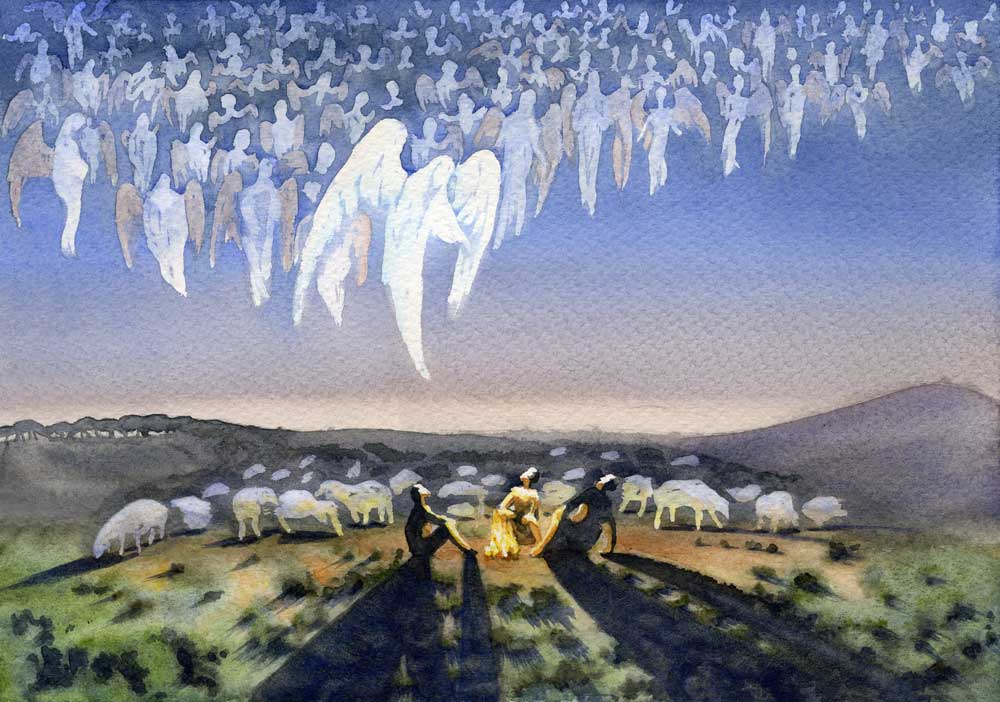Bach to Basics
When the words "Bach" and "Mass" appear in proximity, the subject at hand is usually the magisterial Mass in B Minor. Composed during the last two years of his life as the last great project of his musical career, the Mass in B Minor is an aural textbook of forms of musical expression that Johann Sebastian Bach had explored and mastered for decades. Bach scholar and biographer Christoph Wolff has observed that, "just as theological doctrine survived over the centuries in the words of the Mass, so Bach's mighty setting preserved the musical and artistic creed of its creator for posterity." But this monumental work was not the only Mass setting bequeathed by Bach.
Many modern Protestants do not realize that the liturgical reforms begun by Luther in the 1520s resulted in the transformation rather than the abolition of the Mass. The emerging Protestant movement had no real theological objections to the content of the Ordinary of the Mass in its traditional sequence (Kyrie, Gloria, Credo, Sanctus/Benedictus, and Agnus Dei), so first-generation Lutheran churches continued to use pre-Reformation musical settings of these texts, in both plainchant and harmonized forms. Very soon, however, German settings of the Nicene Creed (the Credo of the traditional Mass) were regularly sung by congregations, and vernacular hymns with the texts of the Sanctus/Benedictus and Agnus Dei were (optionally) sung during communion.
The Kyrie and the Gloria remained a fixed presence in Eucharistic services and, in larger urban churches, were often sung in Greek and Latin by a choir, followed by the congregational singing of a hymnic version of the Gloria. A unified musical setting of the Kyrie and Gloria came to be known as a Kurzmesse ("short Mass"), Kleine Messe ("small Mass"), or (in Latin) missa brevis. Such settings were also dubbed "Lutheran Masses," and, sometime in the decade after 1737, Bach composed four such settings, which are today most commonly referred to by this wonderfully ecumenical (if sometimes confusing) term.
THIS ARTICLE ONLY AVAILABLE TO SUBSCRIBERS.
FOR QUICK ACCESS:
Ken Myers is the host and producer of the Mars Hill Audio Journal. Formerly an arts editor with National Public Radio, he also serves as music director at All Saints Anglican Church in Ivy, Virginia. He is a contributing editor for Touchstone.
subscription options
Order
Print/Online Subscription

Get six issues (one year) of Touchstone PLUS full online access including pdf downloads for only $39.95. That's only $3.34 per month!
Order
Online Only
Subscription

Get a one-year full-access subscription to the Touchstone online archives for only $19.95. That's only $1.66 per month!
bulk subscriptions
Order Touchstone subscriptions in bulk and save $10 per sub! Each subscription includes 6 issues of Touchstone plus full online access to touchstonemag.com—including archives, videos, and pdf downloads of recent issues for only $29.95 each! Great for churches or study groups.
Transactions will be processed on a secure server.
more from the online archives
calling all readers
Please Donate
"There are magazines worth reading but few worth saving . . . Touchstone is just such a magazine."
—Alice von Hildebrand
"Here we do not concede one square millimeter of territory to falsehood, folly, contemporary sentimentality, or fashion. We speak the truth, and let God be our judge. . . . Touchstone is the one committedly Christian conservative journal."
—Anthony Esolen, Touchstone senior editor









